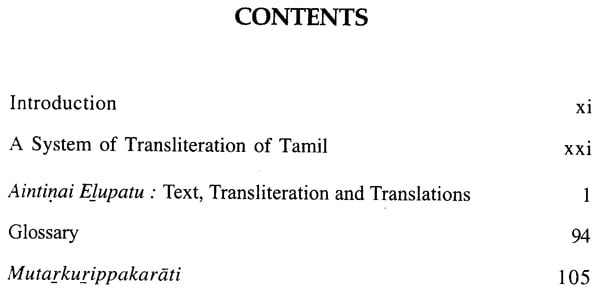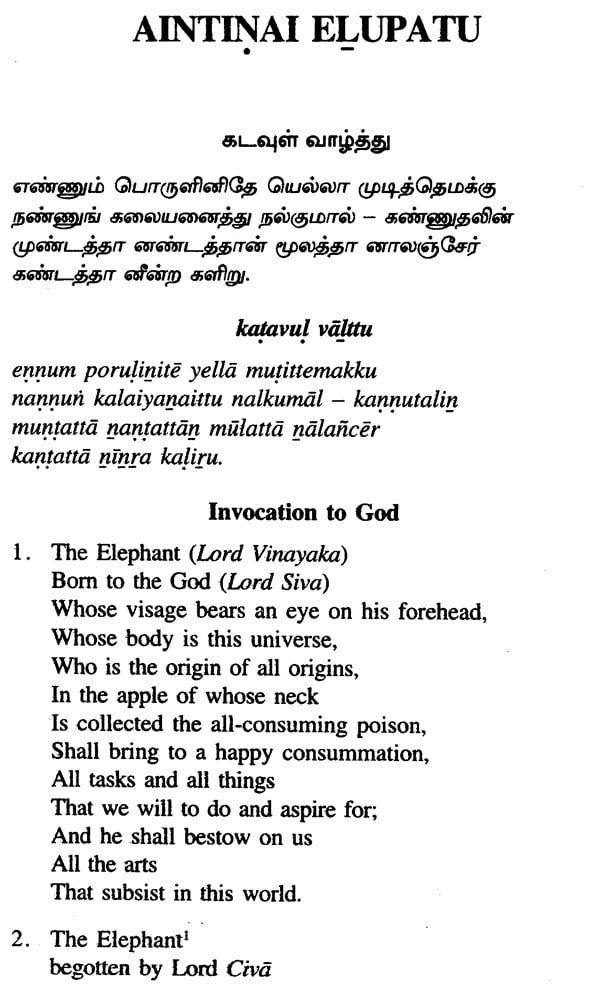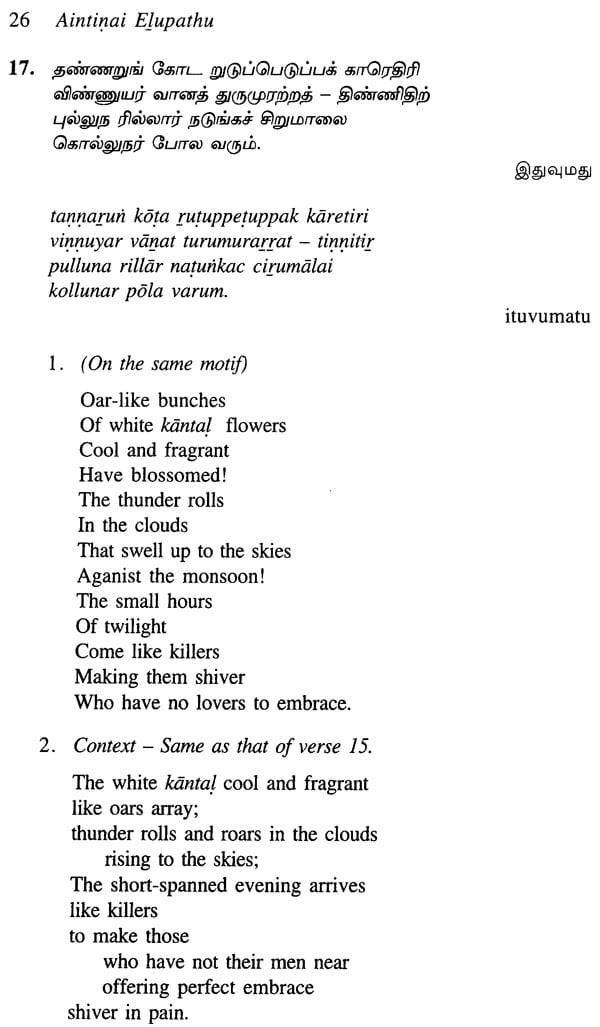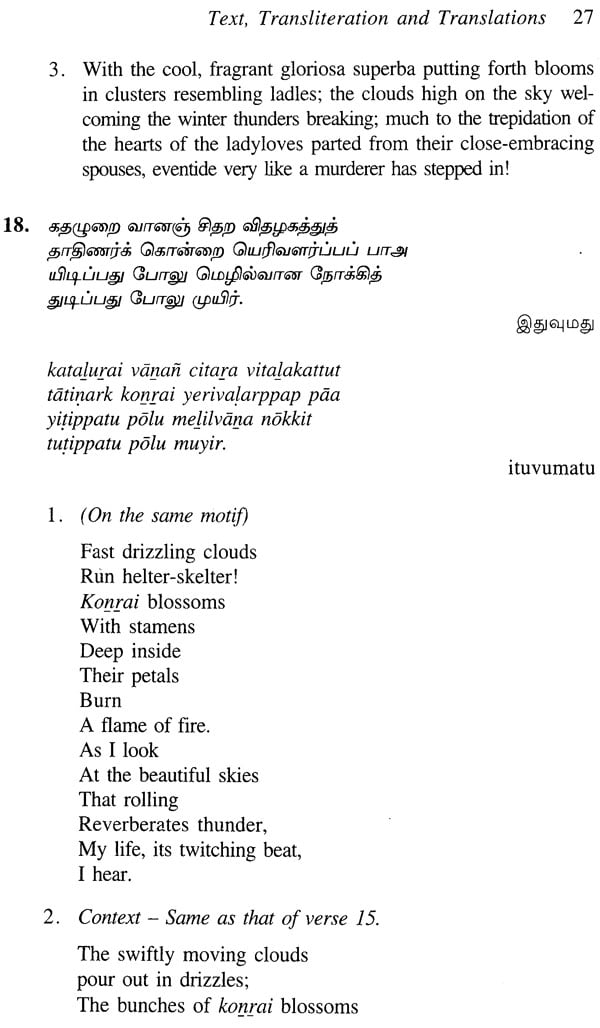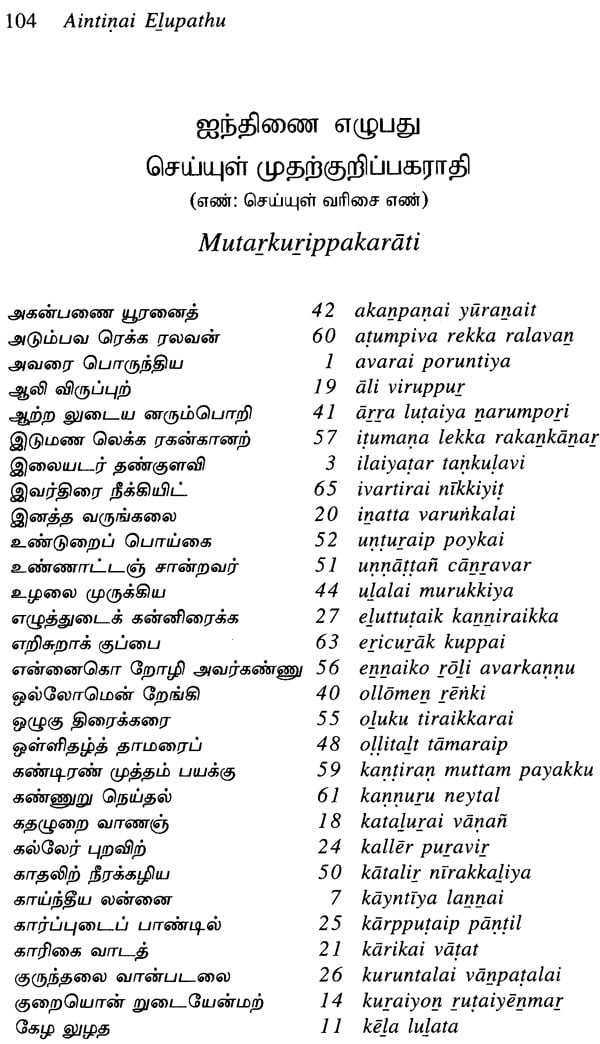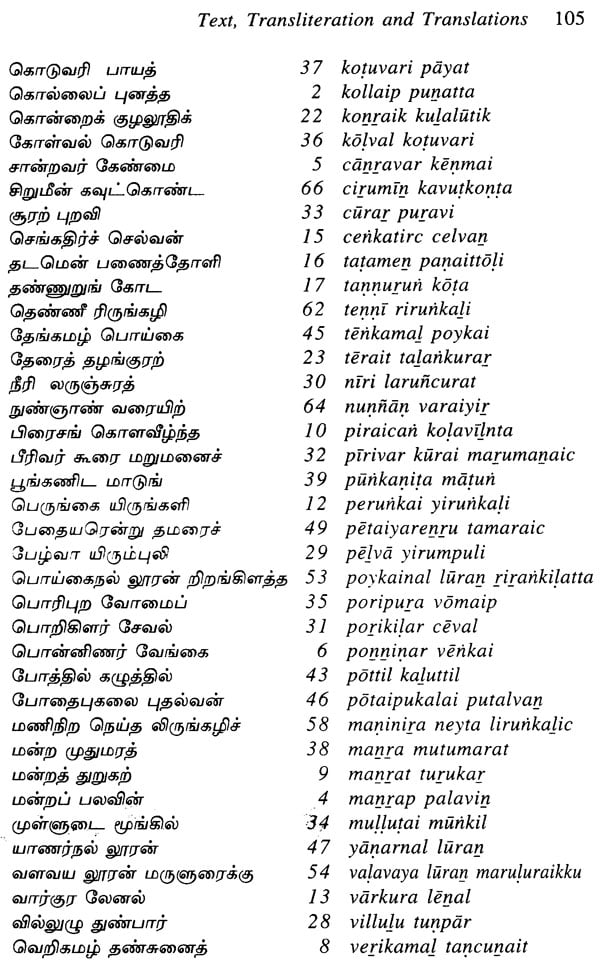
Aintinai Elupatu (Text, Translation and Transliteration in English Verse and Prose)
Book Specification
| Item Code: | NAW602 |
| Author: | Sethumani Manian N. Murugaiyan |
| Publisher: | Central Institute of Classical Tamil, Chennai |
| Language: | English and Tamil |
| Edition: | 2017 |
| ISBN: | 9789381744246 |
| Pages: | 126 |
| Cover: | HARDCOVER |
| Other Details | 9.50 X 6.50 inch |
| Weight | 380 gm |
Book Description
It is heartening to write this foreword to the series of publications brought out by CICT, which I am sure, will do full justice to the masterpieces in Tamil without compromising on the quality of production. The Carikam corpus being a repository of our glorious culture, it behaves our present and future generations to study them and to convey their message and the vision of life embodied in them to the public at large. Let me, therefore, commend the series to the enlightened beings the world over.
I convey my heartiest thanks to the Director Shri A. Palanivel, Registrar Dr. Muhilai Raja pandian and the staff members those who are contributed their efforts to bring out this precious work of Aintinai Elupatu.
Aintinai Elupatu by Mrivatiyar deals with the five regional themes of kurifuji, mullai, marutam, neytal and palai with ten verses to each tamil. The regional of qoutes observation about this poem is that those do not know it may not know the sweetness of the Tamil language.
The following characteristic features of classical Tamil literature are effectively registered in the texts translated here:
1. Precision and economy of words.
2. Exquisite expression of the chosen situations mainly through dramatic monologues and rarely through dialogues.
3. Finest choice of diction.
4. The depiction of practical and universal human emotions.
5. Exposition of themes against matching phenomena of nature.
6. Portrayal of life and values of people around the context of love.
7. Suggestive techniques of communication such as ullurai and iraichi adopted by which the readers are left to perceive the latent layers of experience embedded.
Of the Patinenkilkkanakku works, Aintinai aimpatu, Tinaimoli aimpatu, Aintinai elupatu and Tamilian nurraimpatu are focused here and they are love poems which strictly conform to akam conventions, a part of Tamil literary tradition. They deal sixth and the five-fold divisions of reciprocal love between well-matched man and woman. The five-fold divisions are nothing but five distinctive situations, namely, kurinici, mullai, marutam, oeytal and palai.
Each division indicates the emotions and situations involved as well as the geographical landscape. The emotions and events involved are called uripporul. And for distinct emotions and events, matching geographical region (land), native elements peculiar to that particular region, season and time are assigned as per Tamil literary tradition. The land and time together are called mutal porul; the native elements peculiar to the region concerned are called karupporul. This is to say that in each love poem an emotional situation is poetically painted against a setting best suited to the situation. The situation and their corresponding settings are as follows:
kurinci - The lovers' union and themes pertaining to it, the background being the hilly region where kurinci blooms.
mullai - Longing and waiting for the lover and themes pertaining to it, the background being the sylvan tract where mullai blooms in the rainy season.
marutam - Sulking/quarrel/feigned anger and themes pertaining to it, the background being fertile fields where marutam blooms.
neytal - Yearning for the love and themes pertaining to it, the background being seas and the coastal region where neytal blooms.
Palai - Separation and themes pertaining to it, the background being desert - like region where palai blooms.
But for kurinci all other divisions reflect the impact and affect of separation on lovers mainly the lady-love. The respective authors of aintinai aimpatu, tinaimoli aimpatu, aintinai elupatu and tinaimeilai nfirraimpatu are Maran poraiyandr, Kennan centandra, Muvatiyar and Kanimetaviyar, These texts respectively contain verses - all in venpa metre, giving equal treatment to all five divisions. These texts were not written contemporaneously and they are said to be composed during the first five centuries after Christ.
Book's Contents and Sample Pages
